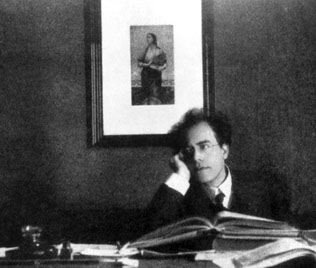 Play
Play
-
Mahler's ongoing introspection is revealed in the fourth movement of his Third Symphony, which is a setting of the Midnight Song from Friedrich Nietzsche’s Thus Spake Zarathustra (Also sprach Zarathustra: "Oh man, take heed! What does deep midnight say?" Each of its eleven lines is to be imagined as coming between two of the twelve strokes of midnight. Mahler instructs the players to keep the music pianississimo (extremely soft).

Mahler was quite taken by the philosophy of Nietzsche in the early 1890s. "In the last few weeks I have been reading something so remarkable and strange that it may very well have an epoch-making influence on my life," he wrote to a friend in 1891. At one point Mahler titled the entire Third Symphony after Nietzsche's The Happy Science.

